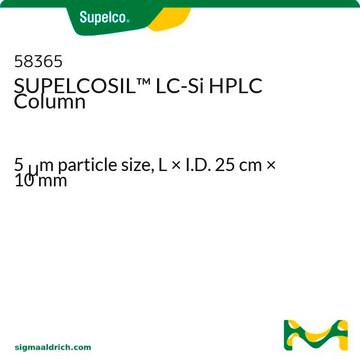61345
D-Lactose monohydrate
≥98.0% (HPLC)
Synonym(s):
β-D-Gal-(1→4)-D-Glc, 4-O-β-D-Galactopyranosyl-D-glucose, Milk sugar
About This Item
Recommended Products
Quality Level
Assay
≥98.0% (HPLC)
form
solid
optical activity
[α]20/D +52±2°, 22 hr, c = 10% in H2O
impurities
3.0-7.0% water
color
colorless
solubility
H2O: 0.1 g/mL, clear, colorless (warm)
SMILES string
O.OC[C@@H](O)[C@@H](O[C@@H]1O[C@H](CO)[C@H](O)[C@H](O)[C@H]1O)[C@H](O)[C@@H](O)C=O
InChI
1S/C12H22O11.H2O/c13-1-4(16)7(18)11(5(17)2-14)23-12-10(21)9(20)8(19)6(3-15)22-12;/h1,4-12,14-21H,2-3H2;1H2/t4-,5+,6+,7+,8-,9-,10+,11+,12-;/m0./s1
InChI key
HBDJFVFTHLOSDW-XBLONOLSSA-N
Looking for similar products? Visit Product Comparison Guide
Application
- Synthesis of lactose lauryl ester in organic solvents using aluminosilicate zeolite as a catalyst.: This research explores the synthesis of lactose lauryl ester, utilizing D-lactose monohydrate and organic solvents in the presence of aluminosilicate zeolite as a catalyst, highlighting its potential applications in food chemistry and surfactants (Enayati et al., 2019).
- Synthesis and characterization of lactose fatty acid ester biosurfactants using free and immobilized lipases in organic solvents.: The paper presents the synthesis and characterization of lactose fatty acid esters using D-lactose monohydrate and various lipases, focusing on their potential as biosurfactants in food and cosmetic industries (Enayati et al., 2018).
Biochem/physiol Actions
Other Notes
Storage Class Code
11 - Combustible Solids
WGK
WGK 3
Flash Point(F)
Not applicable
Flash Point(C)
Not applicable
Personal Protective Equipment
Certificates of Analysis (COA)
Search for Certificates of Analysis (COA) by entering the products Lot/Batch Number. Lot and Batch Numbers can be found on a product’s label following the words ‘Lot’ or ‘Batch’.
Already Own This Product?
Find documentation for the products that you have recently purchased in the Document Library.
Customers Also Viewed
Our team of scientists has experience in all areas of research including Life Science, Material Science, Chemical Synthesis, Chromatography, Analytical and many others.
Contact Technical Service





